Speakers (2025)
(In alphabetical order)
Clara Bucher
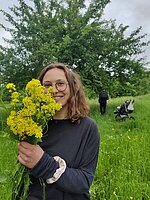
Clara Bucher is a certified midwife and has worked in Germany as well as for 4 months in Madagascar, supporting women before and during birth with this beautiful profession.
Three years ago, she began studying biology at Würzburg University to learn more about our planet, the global interrelations between humans and the environment, and subjects such as genetics, developmental biology and ecology.
She has been part of the Health for Future group in Würzburg and the local BündnisZukunftsklima association for two years. Through her involvement in organizing various events and workshops, she realized that her primary interest lies in promoting health and wellbeing at both the individual and systemic levels.
Expressing herself creatively through painting and writing has been a helpful tool in her life to gain new energy and ideas for future action.
Peter Campbell
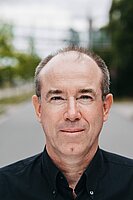
Peter Campbell, a British family doctor by background, now works as a Consultant in International Public Health Management.
He has 25 years’ experience working to design, implement and evaluate small and medium scale health projects in developing countries. These include (alphabetically) Albania, Bangladesh, Ethiopia, Indonesia, Kazakhstan, Kosovo, Malawi, Mongolia, Morocco, Tajikistan, Turkmenistan and, particularly, Uzbekistan where he lived for 8 years.
In 2009 he completed a full-time Masters (MSc) in International Health at Heidelberg University, Germany. Since then, in addition to his consultancies, he is lecturing to Master and PhD level students at Heidelberg University on Quality Management and Consultancy Skills, and runs courses in Project Design and Health Financing at the Charité Medical University, Berlin.
He is currently the intermittent Team Leader of the Quality Improvement of Hospital Services project, a component of the GIZ Health Programme, “Promotion of Mother-Child Health in Tajikistan”.
Nico Darwig
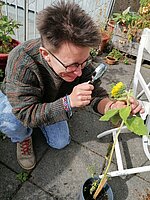
Nico Darwig is a medical doctor currently working in psychiatry. Growing up in the Rhenish lignite mining region shaped an early awareness of the social and ecological costs of fossil fuels, which led to their involvement in climate justice activism around the Hambacher Forst in 2011.
For the past five years, they have been engaged with Health for Future in Aachen and across Germany, where they combine their medical knowledge with climate advocacy. Nico develops and teaches elective modules on planetary health for medical students at RWTH Aachen University, and is active in organizing demonstrations, giving presentations at public events and medical trainings, and engaging in dialogue with political decision-makers.
Carina Dinkel
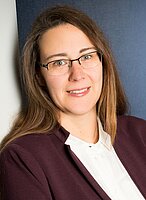
Carina Dinkel is a medical doctor specialising in family medicine. She is currently completing her Master's in Environmental Health. Her experience of living and working in Germany, as well as in Tanzania and various Western African countries, has made her passionate about planetary health and impact mitigation on health systems in very low-income countries. Many of these countries suffer the most from the current climate crisis, despite contributing the least to it.
Carina works at Medmissio – Institute for Global Health in the Planetary Health working group. Here, Global Health, Planetary Health and One Health converge to address critical issues such as Antimicrobial Resistance, promoting planetary health in formal health education, and driving sustainable organisational development.
She is a hands-on person who firmly believes in the transformational power and strength of local communities. She strongly supports local empowerment to find culturally appropriate and locally accepted solutions for global challenges.
Bahar Hassantabar
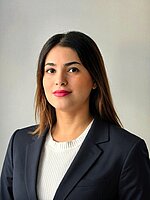
Bahar Hassantabar is a global health consultant and educator specializing in feminist, intersectional, and equity-oriented approaches to health systems strengthening. Her work focuses on gender-responsive climate adaptation, health equity, migration and health, and the integration of human rights–based strategies into National Adaptation Plans (NAPs) and health policies. She promotes inclusive, evidence-based, and culturally relevant health education through participatory, arts-based, and transdisciplinary methods, with an emphasis on community engagement, health literacy, and social accountability.
Bahar holds an MSc in International Health from Charité – Universitätsmedizin Berlin, and MSc and BSc degrees in Midwifery from Tehran University of Medical Sciences. She has contributed to research and implementation projects in Iran, Germany, and Canada, bridging theory and practice across diverse policy and community settings. Her previous roles include leading a virtual breastfeeding clinic initiative and integrating planetary health education into nursing curricula in Iran, conducting qualitative research on migrant women’s reproductive health in Germany, and supporting trauma-informed, rights-based childbirth education in Canada. She currently serves as a research associate with the Planetary Health Eastern Africa Hub and the Center for Global Health Excellence in Iran, working on cross-regional projects focused on gender equity, malaria prevention, and climate-resilient health systems, grounded in systems thinking and decolonial collaboration.
Samira Jabakhanji
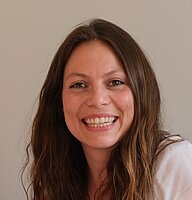
Dr. Samira Jabakhanji is a postdoctoral researcher in the School of Population Health at the Royal College of Surgeons in Ireland (RCSI) University of Medicine and Health Sciences. Samira holds a BSc degree in European Public Health and MSc in Healthcare Policy, Innovation and Management from Maastricht University, and PhD in epidemiology from RCSI University of Medicine and Health Sciences.
Samira’s main fields of expertise are planetary health, sustainable healthcare, and early childhood obesity. Additionally, Samira has conducted research in the areas of cross-border emergency care, quality improvement in healthcare, chronic care delivery in low- and middle-income countries, cost analysis of healthcare interventions, and health inequalities. While working in health economic research, Samira has co-founded and is now chairing the Obesity Cobweb network (COllaBoration in health economic modelling of overWEight and oBesity). She is currently establishing a health equity research network and coordinating the development of monitoring frameworks for global chronic disease surveillance. Samira is also coordinator of the free RCSI online course on Sustainable Healthcare, and she delivers workshops on planetary health integration in university curricula.
Mascha Kaddori
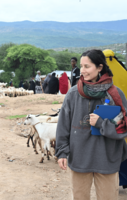
Mascha Kaddori is a dedicated intensive care nurse and veterinarian from Germany with experience in both healthcare fields - human medicine and veterinary medicine. She gained extensive work experience in various intensive care units in the human health sector, before joining GIZ (Gesellschaft für Internationale Zusammenarbeit) in the global project International Alliance against Health Risks in Wildlife Trade. Currently she is the Policy Adivosr for One Health and Scientific Affairs at Vétérinaires Sans Frontières Germany/Veterinarians Without Borders (VSFG) in Berlin. The organization's humanitarian aid and development cooperation is aimed equally at animals, the environment and people in the Horn of Africa, with a focus on pastoralist communities. Mascha‘s expertise spans across One Health, Intensive Care, End-of-life Care, Veterinary Public Health, and Zoonosis, reflecting her commitment to addressing complex health challenges in both human and non-human animal populations.
In addition to her professional career, Mascha Kaddori is active in numerous voluntary projects, including running the DareToCare Animal Welfare Podcast, managing director of the German Veterinary Student Association and Co-founder of the Health Matters webinar series, which aims to bring medical and veterinary students closer together. She is passionate about linking human, non-human animal and environmental health and welfare, as well as creating an interdisciplinary exchange and collaboration.
Muna Khalil
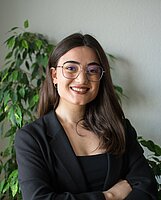
Muna Khalil is a certified pharmacist, biomedical scientist and environmental activist. After obtaining her pharmacy degree from her hometown, Damascus, she moved to Germany to pursue her master’s degree in Biomedical Sciences. This advanced education not only honed her expertise and deepened her understanding of the intricate relationship between healthcare and science but also made her acutely aware of the resource wastage in daily research activities and the healthcare sector. This awareness motivated her to obtain the German Approbation as a pharmacist and join Pharmacists for Future.
Pharmacists for Future (Ph4F) is an initiative committed to promoting sustainability within the pharmacy and broader health sector. her role with Ph4F has allowed her to merge her professional skills with her commitment to environmental stewardship. She is passionate about driving change and fostering practices that ensure the health of both our patients and our planet.
She currently works in a public pharmacy in direct contact with patients, and her work shows her every day the critical need for integrating sustainable practices into our healthcare systems. From advocating for green pharmacy practices to reducing waste and encouraging the use of eco-friendly materials and substances, she is dedicated to making a positive impact.
Thomas Ekidor Kiyong'a

Thomas Ekidor Kiyong’a is a native of the semi-arid Turkana region in Kenya. He is a Climate Change Resilience Expert and currently serve as the Deputy Director for Climate Change in the County Government of Turkana. His work focuses on empowering communities to adapt to the realities of a changing climate by bridging indigenous traditional knowledge with modern scientific approaches. Through research and community engagement, he helps integrate local forecasting systems with contemporary climate science, demonstrating that indigenous wisdom is not only relevant but also a vital hub of solutions to today’s environmental challenges.
Michaela Kuschel
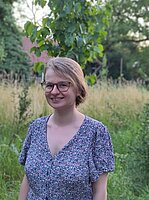
Michaela completed a Bachelor of Science in Organic Agriculture at the University of Kassel and Master studies in Climate Change Management at the University of Applied Sciences Weihenstephan-Triesdorf. In her bachelor thesis she examined possibilities of communication media and learning events to raise soil awareness. During her studies she helped to build up the seminar programme and establish an agroforestry system at her family´s farm Lindenhof Hemmersheim. In her work as research assistant at the University of Applied Sciences Weihenstephan-Triesdorf she focuses on environmental services of agroforestry. As a trained agroforestry planner and arborist, she advises farmers on the establishment of agroforestry systems. Michaela is also a board member and ambassador for the German-wide network of agroforestry planners and practitioners (DeFAF e.V.).
Agan Leonard
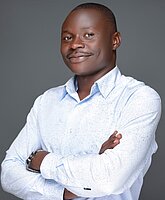
Agan Leonard is an Environmental Health specialist. He holds his Bachelor's degree in Environmental Biology and Health and a Master's of environmental Health from the University of Eldoret. He is a Tutorial Fellow and a researcher at the Department of Environmental Sciences with professional interest in Environmental Health, Planetary Health, and Environmental Toxicology. His current research involves investigating the dynamism of Potentially Toxic Elements within environmental matrices and the use of sentinel organisms (Xenopus laevis) and other biomarkers in monitoring exposure and pollution trends, to inform public health in Africa.
Agan has been engaged with Planetary Health Alliance since 2019; he became a Planetary Health Campus Ambassador in 2021 to 2023 and has been involved in various Planetary Health research and project collaborations where he is determined to advocate for Planetary Health Education, policies and solutions that are scientific and evidence-based. He currently coordinates public communication and community outreach for the Planetary Health Eastern Africa Regional Hub and an Impact Fellow for Planetary Health Alliance.
He has unique perspectives, skills, passion, dedication, and experience to inspire the next generation network of PHCA members to ensure sustainability, continuity, innovation and collaboration among the diverse global network of Planetary Health next generation members.
Johanna Lieberth
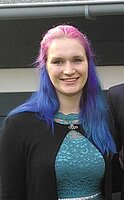
Johanna Lieberth is a medical student in her 6th year in Wuerzburg and is participating in a supplementary study group on global and planetary health. She is an active member of the local Health for Future group since 2020 and since 2021 of the newly founded PAN (Physician Association of Nutrition) University group here in Wuerzburg. The groups work on several projects such as a plant-based week in the student cafeteria, more sustainability in the regional hospitals, and more knowledge about the health risks of climate change for health workers and the population as a whole. Johanna has given various lectures about Climate Change and health and nutrition in times of climate change.
Amneh Masoud
Amneh Masoud (she/her) is a medical doctor, conflict mediator, educational facilitator and currently project coordinator at the Institute for General Medicine at the University Hospital of Würzburg, where she coordinates the trilateral SOPHEA project (Strengthening One and Planetary Health in Eastern Africa) under the lead of Dr. med. Schwienhorst-Stich.
Amneh has been involved in climate justice movements over the past ten years in various projects, that have led her from coal mines in Germany to monoculture deserts in southern Spain, to the reality of EU-borders in Serbia, where has worked with people on the move in different settings. She seeks to build bridges between different movements and professions, finding common ground to take responsibility for the crises modern societies created.
Learning and teaching about the power of regenerative (agri-) cultural practices and the power of community as antidots to exploitation and separation are her sources of inspiration.
Shweta Narayan
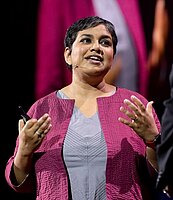
Shweta Narayan spearheads campaigns focused on fossil fuels, air pollution, climate justice, and health equity. Her efforts aim to ignite a global conversation among leading health professional networks, academic institutions, think tanks, public health experts, environment and climate movements to amplify advocacy on climate change and health. Based in India, Shweta brings over two decades of experience in advocacy and community organizing on environmental justice issues. She provides legal, media, and scientific research support to residents of pollution impacted communities and workers exposed to toxic chemicals. Additionally, she collaborates with state and local governments in India to incorporate health professional input in developing climate and environmental health policies. Shweta holds an undergraduate degree in business, and a master’s degree in social work with a specialization in Criminology and Correctional Administration from the Tata Institute of Social Sciences in Mumbai.
Klemens Ochel
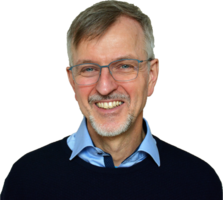
Klemens Ochel is a licensed physician and board-certified specialist in General Medicine with a postgraduate Master’s degree in Global Public Health from the Prince Leopold Institute of Antwerp, Belgium.
For more than three decades, he worked at the Medical Mission Institute (medmissio) in Würzburg in the field of international development cooperation and humanitarian action. During this time, he advised both church-based and governmental partner organizations in Africa, Asia, and Eastern Europe.
His professional focus has included HIV prevention and treatment, the management of epidemic and pandemic diseases, antimicrobial resistance, as well as global and planetary health.
A particular priority has always been knowledge transfer: He initiated and successfully implemented several e-learning programs on these topics.
Dr. Klemens Ochel is deeply motivated by the question of how health, justice, and sustainability can be addressed together worldwide—and how we can lay the foundations today for a healthier future.
Melvine Otieno
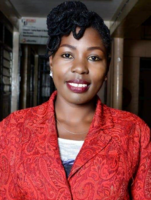
Melvine A. Otieno is an Environmental Health scientist and Planetary Health East Africa Regional Hub lead, a Planetary Health Campus Ambassador alumnus (2019) and former Next Generation Network Fellow (2020-2023) at Planetary Health Alliance. She advances climate action, sustainability, global and planetary health in collaboration with KLUG – German Alliance on Climate Change and Health and other local, regional and International Institutions. She is an Associate Team Member of Women Leaders for Planetary Health, further advocating for gender inclusivity in global health leadership. An Assistant Lecturer at the University of Eldoret, Kenya, where she coordinates DAAD-funded SOPHEA project in partnership with institutions in Germany and Tanzania. Currently a PhD candidate at the Institute of Medical Epidemiology, Biometry and Medical Informatics (Global and Planetary Health Working Group) at Martin Luther University Halle-Wittenberg, Germany. Through her research, advocacy, and leadership, Melvine is driving impactful change & transformative solutions at the nexus of climate change, environmental health, and planetary well-being.
David Owino
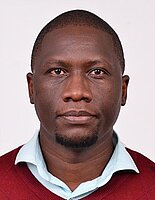
David Owino is a One Health Specialist with over 13 years of experience working across East Africa in both humanitarian and development contexts. He has led programs on antimicrobial resistance, neglected tropical diseases, emerging infectious diseases, food safety, and WASH interventions. David has worked with governments, NGOs, and international partners to design and implement integrated One Health approaches, strengthen local capacities, and influence policy. He has published widely on zoonotic diseases, food safety, and community-based surveillance, and is passionate about exploring the vital connections between human, animal, and environmental health.
Janeth A. Peter
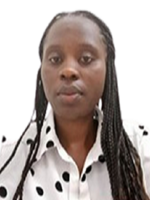
Janeth Atieno Peter (BA, MA) is an Assistant Lecturer at the School of Public Health at the Catholic University of Health and Allied Sciences. With a background in social Sciences. She brings a unique perspective to her role, particularly in understanding the complex interactions that exist between Planetary Health social dynamics and Public Health. Janeth has a strong desire to investigate how, in the context of East Africa, human health and planetary well-being is related.
Janeth recognizes that social and cultural activities have a big impact on human health, which is why she is so interested in Planetary Health as well as socio-cultural determinants of health. She believes that addressing Environmental challenges requires a holistic approach that integrates social, cultural, and ecological perspectives.
In her teaching role, Janeth strives to inspire the next generation of public health professionals to consider the broader implications of their work on both human populations and the planet. Through her commitment to strengthening One Health initiatives in East Africa, she aims to foster collaboration across disciplines and promote sustainable solutions for a healthier future.
Jörg Schmid
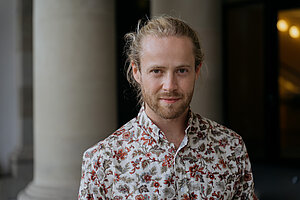
Dr. Jörg Schmid is a medical doctor and planetary health advocate from Munich, Germany. In his clinical work he puts climate sensitive health counselling into practice, his major interest lies in the potential of plant based diets for the health of people and planet.
Eva-Maria Schwienhorst-Stich
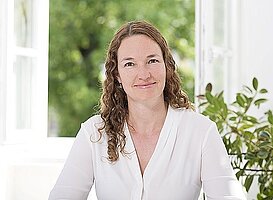
Dr. med. Eva-Maria Schwienhorst-Stich is a medical doctor with previous clinical experience in pediatrics and "tropical medicine"/infectious diseases for several years. She has obtained a Diploma in Tropical Medicine and Public Health (DTMPH) from Charité and a Masters in International Health (MScIH) from Heidelberg University. She has worked for several years as a global health consultant for the German Leprosy and TB Relief Association (DAHW/GLRA) based in the headquarters in Germany with field visits to various countries in Asia, Africa, and Latin America. She has been teaching on global health topics at various universities and ran a summer school on tropical medicine and global health at Medmissio in Würzburg for several years. She used tob e head of the medical skills lab at Würzburg University medical faculty for the past three years and just finished her Masters in Medical Education (MME). After having learned about the dramatic extent and the urgency regarding the triple planetary crisis - climate change, biodiversity loss and pollution - her current focus is advancing planetary health education and action locally, nationally and internationally, the latter through the SOPHEA project. Apart from being a "scientivist", she is a mother of three daughters and deeply concerned about how our actions today determine the future living conditions on our planet earth.
Hannah Staab
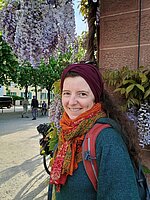
Hannah Staab has loved singing her whole life and started singing in choirs at the age of ten. She has always loved a capella harmony singing. In her mid-twenties she discovered a form of singing in harmony without sheets and was instantly in love with this more inclusive form of singing. For many years now she has led groups in singing together based on the Natural Voice principle, learning by ear. Hannah was part of the Natural Voice Network in Great Britain and has recently completed a one year training for leading singing groups held by the founders of Stimmvolk in Switzerland.
Hannah lives and sings in Freiburg in south-west Germany.
August Stich
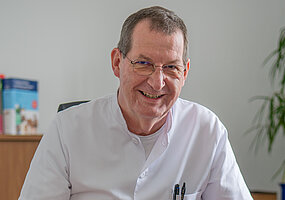
Professor Dr. August Stich is an MD and specialist in general, internal and tropical medicine. In 1992 he qualified as Master of Science at the London School of Hygiene and Tropical Medicine and worked afterwards in Würzburg, Liverpool and Heidelberg. In the years between 1988 and 2004 he had various assignments to tropical countries as medical doctor, health coordinator, advisor or research fellow, among others Zimbabwe, Somalia, Cambodia, Angola and Tanzania. His research work had a special focus on human African trypanosomiasis, malaria, HIV, clinical tropical medicine and migrant health. From 2004 to 2023 he was head of the Department of Tropical Medicine in the Medical Mission Hospital in Würzburg. Since 2008 he is also the chairman of the Medical Mission Institute, since 2009 member of the extended board of the German Society of Tropical Medicine and Global Health and since 2022 member of the Supervisory Board of the German Leprosy and Tuberculosis Relief Association. In 2024 he took over the Chair of Clinical Infectiology at the Julius-Maximilians-University and is now heading the Department of Infectious Diseases and Tropical Medicine at the University Hospital of Würzburg. He currently lives with his family near Würzburg.
Ties Temmink
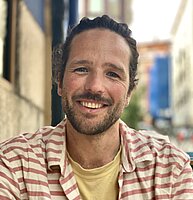
Ties Temmink is a hydrologist, agronomist and compost maker who works in the field of regenerative agriculture and restorative water systems. He has an academic background in Environmental Sciences and Hydrology. His interest in soil and the potential of regenerative agriculture as a climate mitigation practice was sparked after years of climate activism during a period of visiting several farming projects in Europe. In 2020 he started an association that collaborates with farmers on the implementation of regenerative practices, inspired by the findings of the rapidly unfolding and fascinating field of soil microbiology. The association is an active member in the growing regenerative agriculture movement in the Netherlands and aims at knowledge transfer and sharing.
Pacifique Ufitinema
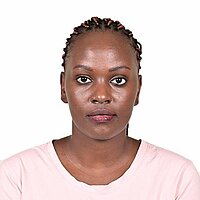
Dr. Pacifique Ufitinema is a dedicated global health leader and passionate advocate for equitable healthcare, with expertise in clinical practice, community health, and research. She holds a Master of Science in Global Health Delivery from the University of Global Health Equity (UGHE) and a bachelor’s degree in general medicine and surgery from the University of Rwanda.
Currently, Dr. Pacifique serves as the Coordinator for the Centre for One Health at UGHE. Prior to this role, she practiced as a General Medical Practitioner at two district hospitals in rural Rwanda and worked as a Community Outreach Coordinator at Nyamata Level II Teaching Hospital, strengthening preventive care and public health interventions.
Her commitment to advancing global health is evident in her research contributions, particularly in Neglected tropical diseases such as podoconiosis and snakebite envenomation. She is passionate about preventive care, health education, and capacity building, with a strong focus on reducing health disparities in underserved communities.
David Villinger
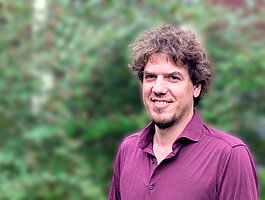
Dr. David Villiger [MD] is a Global Health Consultant at medmissio - Insitute for Global Health, Würzburg, Germany. In this role, he is consulting healthcare facilities and organisations in India, Southern, and Southeast Africa, implements international cooperation projects and teaches different target groups in antimicrobial stewardship, parasitology as well as in clinical practice in low resource settings.
Dr. Villinger completed medical training at the University of Leipzig, followed by a six-year specialist training in Clinical Microbiology, Virology and Infectious Epidemiology at the University Hospital Frankfurt am Main. His expertise lies at the intersection of health-system strengthening in low resource settings and clinical microbiology, with a special focus on antimicrobial stewardship (AMS). He has contributed to a range of global health and research projects, including surveillance of multidrug resistant bacteria within a newborn unit of a Kenyan Tertiary hospital¹.
He is engaged in consultancy and projects designed to strengthen primary healthcare in low resource settings, aiming to improve patient outcomes through collaborative approaches – including aspects of Planetary Health. Following intensive online teachings, currently he is supervising healthcare facilities in South Sudan to implement AMS programs. Furthermore, he is part of the EFFO-CoE project in Rwanda (funded by the German MoH), which establishes, and trains a specialized unit for the intensive care of patients with high-consequence infectious diseases.
Susann Warkentin
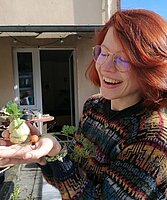
Susann Warkentin is currently completing her environmental engineering studies in Aachen after successfully completing her Master of Science in Architecture. Her work focuses on a holistic view of sustainable living, planning, and community life. In addition to her studies, she passes on her knowledge in university teaching in engineering courses and in the medical curriculum. She has been using interactive formats such as workshops and summer schools to develop networked ways of thinking since 2022, both in her teaching at RWTH Aachen University and in her voluntary work at Health for Future.






